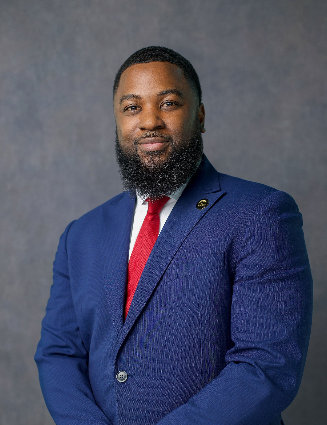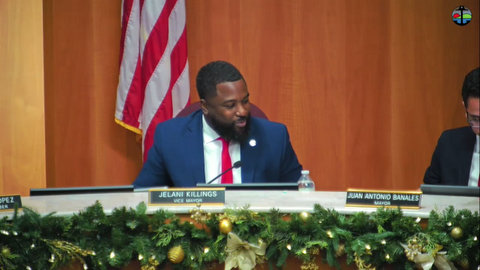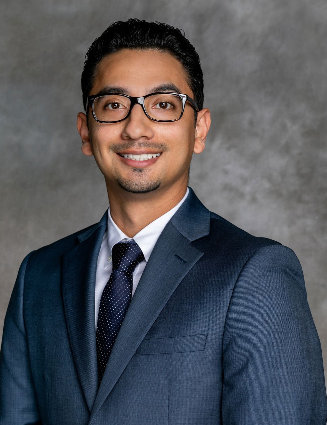
03 Nov Q&A: A Better Pittsburg Starts With Job-Housing Balance, Jelani Killings Says

Pittsburg Vice Mayor Jelani Killings is running for reelection to the City Council. (Photo via city of Pittsburg)
Interview, Malcolm Marshall
Name: Jelani Killings
Age: 38
Employment History: City of Oakland Public Ethics Commission (2014 – Present), H&R Block (2011 – 2014), STS Academy (2011 – 2013)
Public Service: Pittsburg City Council (2016 – present), Contra Costa County Economic Opportunity Council (2012 – 2016)
Education: B.A., Business Administration – Clark Atlanta University
MPA Public Policy and Management – California State University East Bay
This interview has been lightly edited for clarity.
CC Pulse: For those who don’t know your background, how has it shaped your decision to run for City Council? Why are you running, in general?
Jelani Killings: I want to continue the work and progress we’ve made. I’ve been focused on government integrity, accountability and transparency, and a lot of that comes from my work that I do for the city of Oakland’s public ethics commission. I’ve brought that lens to City Council, making sure we adopted it in terms of government performance measurements, making our subcommittees video recorded and open to the public, and doing things to make folks more informed, like hiring community outreach employees to help communicate what’s going on in City Hall.
Nothing happens overnight. A lot of decisions you make, you won’t be in the seat when it comes to fruition. It’s a lot of long-term planning. I was part of the adoption of our 2040 General Plan, which will guide development of our city for 20 years. We have specific projects repurposing some industrial sites. We’re in the planning stages, and I want to see them through.
There’s a level of experience, leadership that I want to see continue on the City Council. Having the deep understanding of not only community but how government works is important, especially for communities like Pittsburg.
CC Pulse: What would you say the No. 1 issue facing Pittsburg right now, and what can be done to fix it?
JK: Our job/housing imbalance touches a number of things. Greater than 80% of our local residents commute outside the city to work. That creates the traffic issues we have. People having to commute one to two hours a day, then being able to try to be active in the community is tough, right? So coming back from work, you’re not getting back until 6, 7 in the evening, it’s tough to be engaged and to do things within the community. What we’ve really tried to focus on is how do we bring more jobs here?
We used to be an industrial center that provided a lot of living wage jobs. When I think of older generations, this was a place that had a lot of good-paying jobs, the steel mill, the canneries, refineries and different industry that was here that provided opportunities for people to work and buy homes in the community. Since industry has left over the past 20- or 30-plus years, it’s left a void to where now everybody has to go out of the community.
When people have to work outside of the city, that’s sales tax we lose because they’re buying lunch every day in that community they work in; they’re stopping at the grocery store in the city that they work in. And those are dollars that could really help us in our community, that could provide more programs and more services within Pittsburg. And so I think that that is really one of the biggest issues that we need to address as a city, is the job/housing imbalance, because it will address transportation, it will address quality of life for local residents, and it’ll increase economic development for our local businesses and restaurants and services to be able to keep those dollars in the community.
CC Pulse: How will you ensure fiscal responsibility as a council member, and what are some ways that the city can raise revenues?
JK: In Pittsburg, we have a fiscal sustainability ordinance that we have to maintain 30% reserves, which is 30% of our general fund. Then it also provides, whenever there is a surplus in general funds, how we allocate those dollars and putting money away. And then also supporting specific projects around infrastructure.
Every year, we go through the budget process. Before the process, we have a goals and visioning workshop with the council, and then we hear from staff about their goals for their department, and then how those tie into our citywide goals that we’ve established as a council. Those citywide goals deal with public safety, economic development, public infrastructure, and we’ve also created a focus on youth development.
Subcommittees are where a lot of the conversations and work happens before an item is brought to council. We had as many as 19 different subcommittees. That’s not effective, because you have to the staff to staff those subcommittees. City Council members have to schedule to be available for those subcommittees. And it was really just a nightmare. You weren’t able to track when subcommittees were meeting and what happened or what progress was taking place. So I put forward and council adopted cutting it down to five standing subcommittees around the five goal priority areas that we establish. We have a finance subcommittee, an infrastructure subcommittee, economic development subcommittee, public safety subcommittee, and a life enrichment subcommittee.
Sales tax and property tax are the two biggest revenue sources for our general fund. We have a focus on business retention, expansion and attraction. How do we make sure businesses remain here? We want to have conversations with them, what’s working for them, what challenges they’re having, so we can address them. We want to keep them here, because they’re adding to our tax base. If there are businesses growing, how can we make sure they grow in Pittsburg? How do we find a new space for them in Pittsburg? How can we help you expand? If there are industries you work with, how can we get them here?
We’ve supported two main visions. One is sports tourism. The Ultimate Fieldhouse, they have a facility that they operate in Walnut Creek. They’ve had the Warriors come through; I believe they’re also affiliated with the Warriors G League team. They’re going to be the operators involved with the youth sports tourism facility in Pittsburg.
We have two hotels in development. One is the Marriott Courtyard, opening its doors before the year is over. And we have Hilton Home. The hotels typically generate about $400,000 to $500,000 for us.
Another project coming is our Technology Center, which is going to be powered by a data center on a portion of the old golf course. It still has to come before council, but this is a nearly $1 billion project, and when you think about $1 billion being invested in your community, we’re going to see millions of dollars come in through sales tax, property tax, as well as industry that’s going to come in as a result.
These are tangible ways that we’re growing the revenue and continuing to build an environment that allows business to thrive.
CC Pulse: What do you think makes Pittsburg a special place?
JK: So many things in Pittsburg are truly unique. No other city in Contra Costa has the type of community pride that Pittsburg has. The pride that comes through Pittsburg is carried throughout generations. Whether you’ve been here for 30 years or you’ve been here three years, you can sense that small town community pride.
One thing I love about our community and our leadership is that we’re focused on improving Pittsburg. We’re not focused on political wins. We’re not focused on getting our names in the headlines. We’re not focused on throwing each other under the bus. We’re focused on work that will improve our community.
We’re a beautiful city. We have waterfront access, hills, so much diversity — the Hispanic community, Asian and Pacific Islander community, Black community, the Italian heritage. It’s always been a melting pot, and we’ve prided ourselves on being able to work together to move our city forward.
CC Pulse: Lastly, what message do you have for voters as they get closer to Election Day? Why should voters choose you?
JK: I want to keep Pittsburg moving forward. I have a proven track record, I have the experience, and I’m committed to achieving the results that Pittsburg residents want. Over the past eight years, we’ve had nearly 200 City Council meetings, and I’ve only missed one. I want Pittsburg residents to know that I’m committed to this work of moving our city forward.
We’ve been able to see the progress that we’ve made over these past eight years with investments in our roads; we reopened our Marina Community Center that had been closed for over 20 years. We’ve seen a revitalization of Old Town. We have new businesses coming in that are creating vibrancy and leading people to our waterfront to enjoy our city. We have commercial development for the first time in over 20 years on the west side of our city, over in San Marco, that will be anchored by a new grocery store, Sprouts.
I hope that they are proud of the progress that we’ve been made and that I’ve been able to demonstrate myself as an effective and trustworthy leader.
Read our interviews with the other Pittsburg City Council candidates:
Q&A: To Improve Pittsburg, Get Community, Youth Involved, Gonzalez Says






No Comments